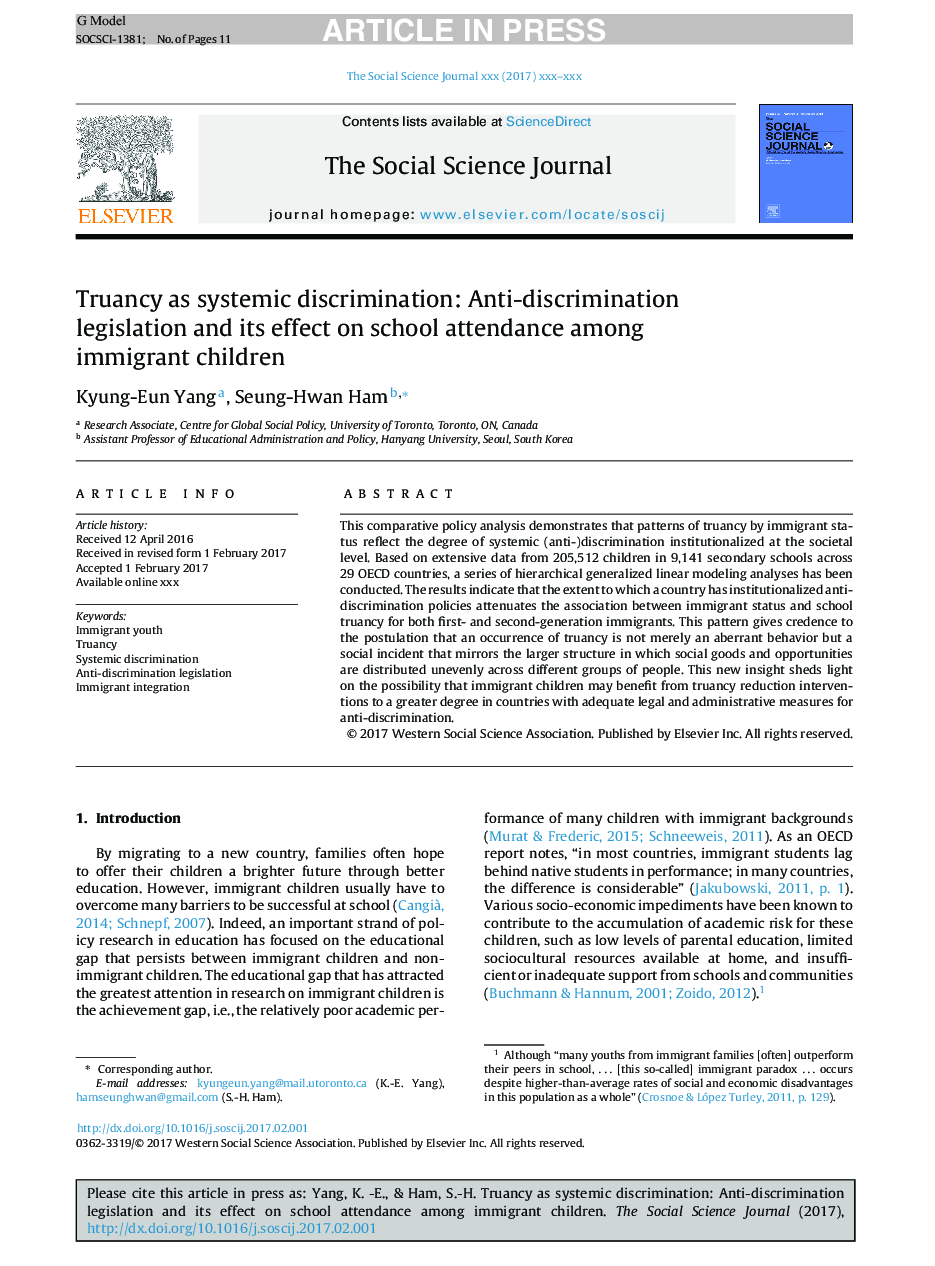| Article ID | Journal | Published Year | Pages | File Type |
|---|---|---|---|---|
| 4761946 | The Social Science Journal | 2017 | 11 Pages |
Abstract
This comparative policy analysis demonstrates that patterns of truancy by immigrant status reflect the degree of systemic (anti-)discrimination institutionalized at the societal level. Based on extensive data from 205,512 children in 9,141 secondary schools across 29 OECD countries, a series of hierarchical generalized linear modeling analyses has been conducted. The results indicate that the extent to which a country has institutionalized anti-discrimination policies attenuates the association between immigrant status and school truancy for both first- and second-generation immigrants. This pattern gives credence to the postulation that an occurrence of truancy is not merely an aberrant behavior but a social incident that mirrors the larger structure in which social goods and opportunities are distributed unevenly across different groups of people. This new insight sheds light on the possibility that immigrant children may benefit from truancy reduction interventions to a greater degree in countries with adequate legal and administrative measures for anti-discrimination.
Related Topics
Social Sciences and Humanities
Psychology
Social Psychology
Authors
Kyung-Eun Yang, Seung-Hwan Ham,
